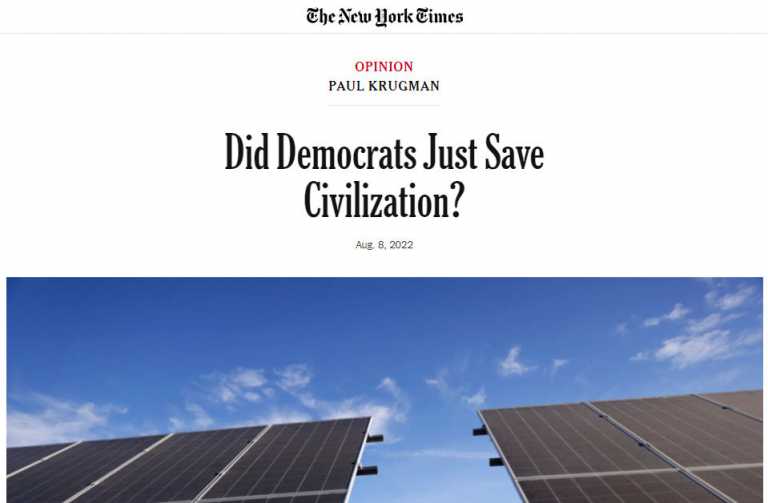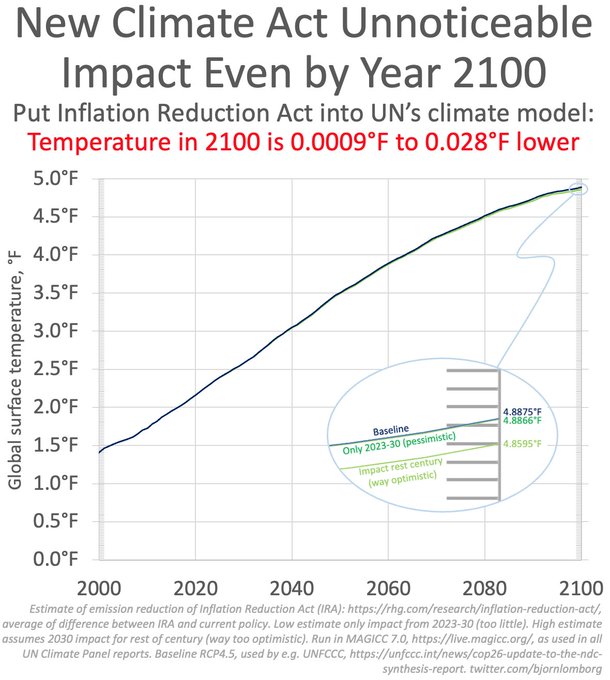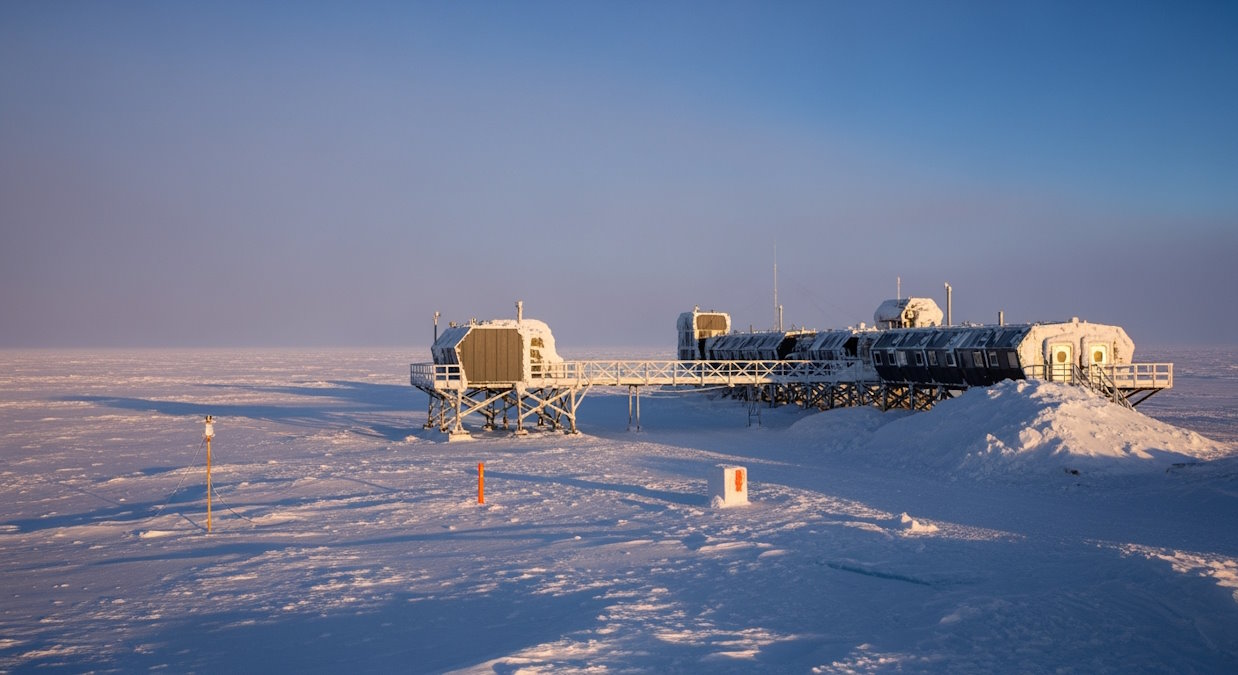
Climate Realism by Anthony Watts | August 11, 2022
On August 8th , just a day after the passage of the so-called “Inflation Reduction Act,” containing a suite of climate-related spending and tax credits, the Wall Street Journal (WSJ) editorial board published a scathing editorial titled “Tilting at Climate Windmills – Schumer-Manchin will have little effect on the world’s temperature,” showing how the provisions of the bill will have virtually no effect on climate at all. WSJ uses analysis with the help of the IPCC climate models and Dr. Bjorn Lomborg to come up with a number, and the number is vanishingly small. They write:
Nearly all of Washington—Democrats, the press, lobbyists—is taking a victory lap with Senate passage of the Schumer-Manchin tax, climate and drug price control bill. The climate lobby is especially thrilled, claiming a historic victory that will reduce temperatures, hold back the rising sea, and save the planet.
Or, maybe not. Our contributor Bjorn Lomborg looked at the Rhodium Group estimate for CO2 emissions reductions from Schumer-Manchin policies. He then plugged them into the United Nations climate model to measure the impact on global temperature by 2100. He finds the bill will reduce the estimated global temperature rise at the end of this century by all of 0.028 degrees Fahrenheit in the optimistic case. In the pessimistic case, the temperature difference will be 0.0009 degrees Fahrenheit.
So, as seen in the figure below provided by Lomborg, we get somewhere between 0.028 and 0.0009°F reduction in temperature by 2100 for about 400 billion dollars in climate spending contained in the bill. 
At that rate, simple math suggests the amount of money required to achieve the much desired 1.5°C (2.7°F) reduction in temperature (back to pre-industrial levels) using the best case reduction of 0.028°F would be $38,571,428,571,428 or approximately 39 Trillion dollars. The worst-case temperature reduction of 0.0009°F would cost a staggering 1,200,000,000,000,000 dollars or ONE QUADRILLION TWO HUNDRED TRILLION DOLLARS.
To put that number in perspective, according to the World Bank, the 2020 world economy in U.S. dollars was approximately $84.7 trillion. Assuming it would actually work, to have a meaningful effect on climate, the world would have to spend about half the global annual economy. If you think inflation is bad now, just wait for those sorts of numbers.
The worst-case scenario is out of reach of world wealth.
President Biden had this to say:
Now, let me be clear: This bill would be the most significant legislation in history to tackle the climate crisis and improve our energy security right away. And it’ll give us a tool to meet the climate goals that are set — that we’ve agreed to — by cutting emissions and accelerating clean energy.
Meanwhile, New York Times economist Paul Krugman suggested Democrats “saved civilization” with climate provisions in the spending bill. There are just no words to describe this sort of disconnect between believing you’re a climate superhero and climate reality, especially when you’re a Nobel winning economist. Kudos to WSJ for pointing out the climate folly of the “Inflation Reduction Act.”



